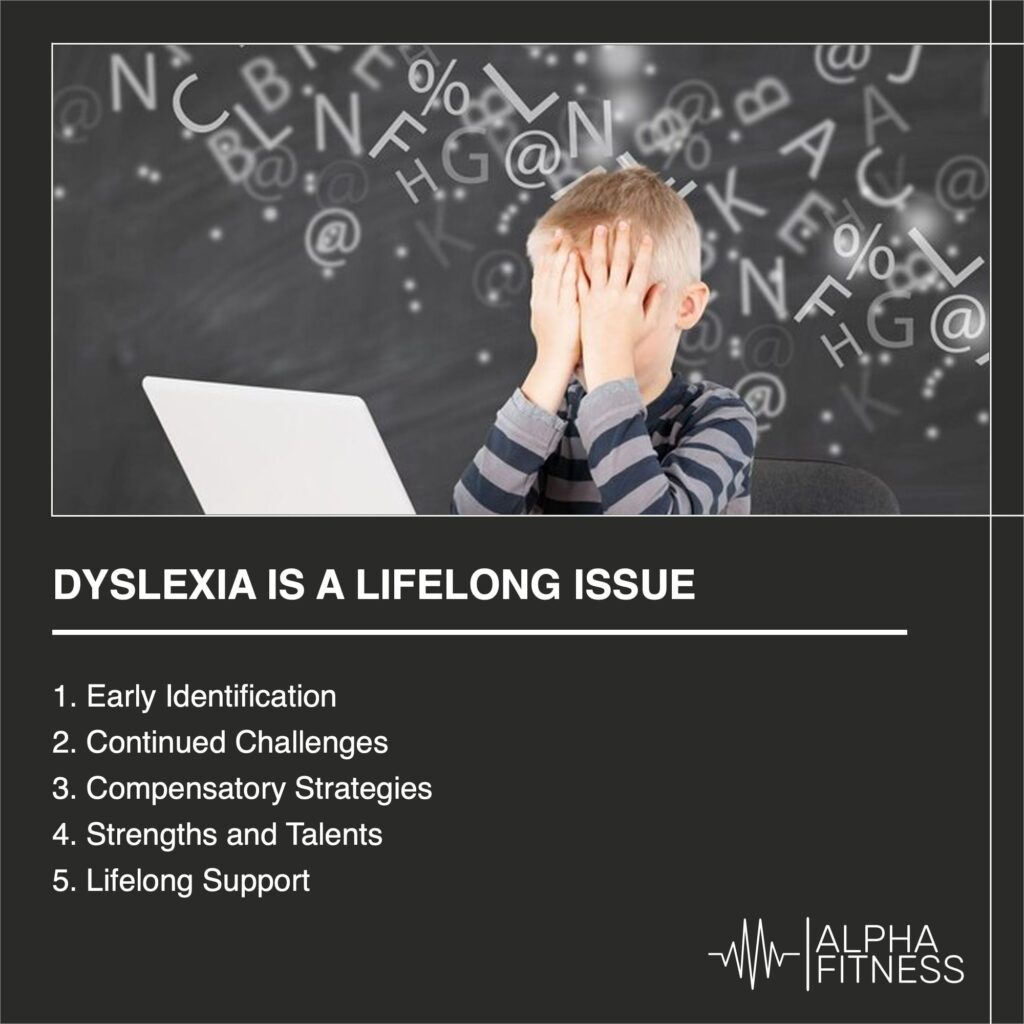
Yes, dyslexia is typically considered a lifelong condition. Dyslexia is a specific learning disability that affects a person’s ability to read, write, and spell. It is neurobiological in nature and often has a genetic component. While there is no cure for dyslexia, it is a condition that can be managed and individuals with dyslexia can learn strategies to improve their reading and writing skills.
Some important points to understand about dyslexia being a lifelong issue:
Early Identification: Dyslexia is often identified in childhood when a child begins to learn to read and write. Early intervention and support are essential to help children with dyslexia develop effective reading and writing skills. However, even with support, dyslexia remains a lifelong condition.
Continued Challenges: Individuals with dyslexia may continue to face challenges with reading, writing, and spelling throughout their lives. These challenges can affect academic, professional, and personal aspects of their lives.
Compensatory Strategies: While dyslexia cannot be cured, individuals with dyslexia can learn compensatory strategies to improve their reading and writing abilities. These strategies may include the use of assistive technology, specialized reading programs, and techniques that help them work around their reading difficulties.
Strengths and Talents: Many individuals with dyslexia also have unique strengths and talents. They may excel in areas such as problem-solving, creativity, and thinking outside the box. Recognizing and nurturing these strengths is important for building self-esteem and confidence.
Lifelong Support: Dyslexia is not something that individuals “outgrow.” Even as adults, those with dyslexia may benefit from ongoing support and accommodations in educational and workplace settings.
Awareness and Advocacy: Raising awareness about dyslexia and advocating for individuals with dyslexia is essential. Public understanding of dyslexia helps reduce stigma and ensures that individuals with dyslexia have access to the support and accommodations they need.
Below is a list of useful links:
- Radishes benefits include to aid with fungal infections
- Garlic may help lower blood pressure
- Cutting down on salt reduces the chances of heart failure
- Signs and symptoms of kidney stones
- What causes abdominal pain?
It’s important for individuals with dyslexia, their families, educators, and professionals to work together to provide the necessary support and resources to help them thrive in their academic and personal lives. While dyslexia presents challenges, many individuals with dyslexia have gone on to achieve great success in various fields, demonstrating that dyslexia does not define a person’s potential or capabilities.



